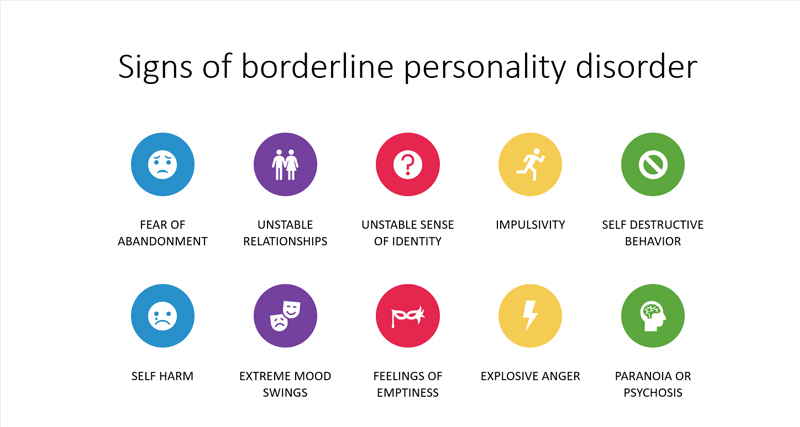Living with BPD – Support and Recovery
Living with Borderline Personality Disorder (BPD) is not easy, but recovery is possible. With access to treatment, social support, and a personalised approach to wellbeing, many individuals with BPD learn to build stable relationships, manage emotions, and gain a strong sense of identity. Read more about Living with BPD below.
1. Building emotional resilience
- Learn to identify emotional triggers early.
- Use DBT techniques like ‘Wise Mind,’ ‘TIPP skills,’ and grounding exercises to stay balanced.
- Journaling or mindfulness meditation helps to track progress and understand patterns.
2. Strengthening relationships
- People with BPD often feel “too much” or “not enough.”
- With therapy, they can learn healthier communication and conflict resolution.
- Partners, friends, and family benefit from psychoeducation and boundaries training.
3. Managing relapses
- Setbacks are normal in recovery.
- Have a relapse plan in place with a therapist, including safety strategies and support contacts.
- Focus on progress, not perfection.
4. Employment and education
- With emotional regulation in place, many individuals return to work, study, or caregiving roles.
- Employers and universities can be educated about the condition to foster supportive environments.
5. Self-care routines
- Regular exercise, sleep, healthy eating, and creative outlets support mood stability.
- Reducing alcohol and substance use is especially important, as impulsivity can worsen under influence.
6. Peer support
- Peer-led groups provide validation and tools that only lived experience can offer.
- Online forums and local support meetings are available through Mental Matters, SADAG, and international BPD networks.
7. Family support and understanding
- Families benefit from learning how to respond calmly, set consistent boundaries, and not take outbursts personally.
- Group therapy or family counselling may help heal relationships damaged by emotional intensity.
In the South African context, access to affordable long-term therapy is still limited in many regions. Raising awareness, expanding training for professionals, and offering community-based DBT programmes can help close the treatment gap.
Living with BPD
Recovery from BPD means not only managing symptoms — it’s about building a life worth living, with confidence, connection, and hope.
👉 [End of Series | Back to Overview]


